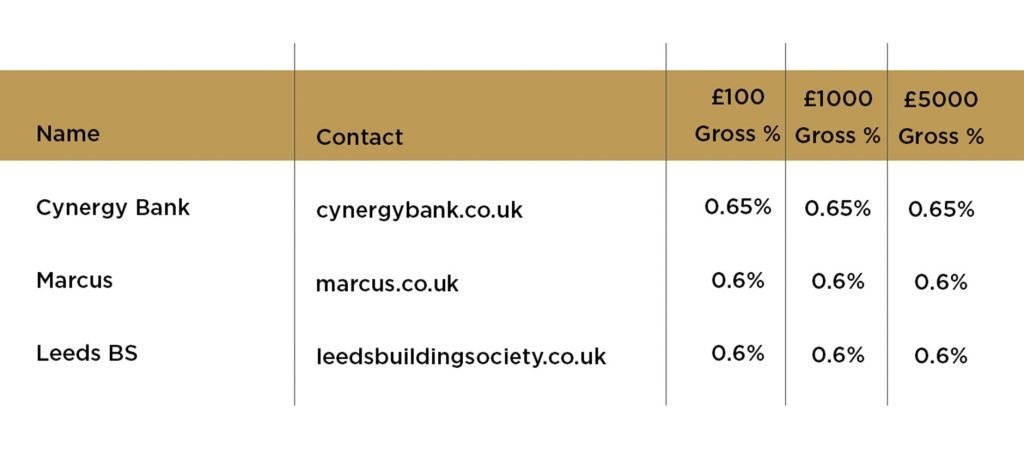Wealth Management Update – October 2021
PASSING ON THE PENSION
The use of a Pension pot as a Tax-efficient way to pass wealth to family and loved ones without them incurring an Inheritance Tax liability has become fairly commonplace, and although we wish you a long life, should you die under the age of 75, your beneficiaries may not be liable for any income tax on future withdrawals from that pot. This is because, under current rules, if you die before the age of 75, you can pass on defined contribution personal or workplace money-purchase Pensions to loved ones free of Income Tax or Inheritance Tax, provided payment is made within two years of death.
These make for attractive Tax benefits indeed, but ones that Mr Sunak might just be targeting as part of his mission to re-coop government spending on Covid-19 bailouts. Currently, there is no Inheritance Tax liability at any point on Pensions, even if the total value of your Estate exceeds the nil-rate IHT threshold – making Pensions a very Tax-efficient way to pass on family wealth – although worth noting people typically cannot pass on defined benefit “final salary” Pensions on death, unless schemes have specifically made provisions for spouses and dependents.
Carl Emmerson, deputy director at impartial think tank the Institute for Fiscal Research, has attacked Pension Tax breaks as “indefensibly generous” and “very, very beneficent”, calling for them to be reviewed. In his opinion, he stated, it was “unfair” to allow families to use their pensions to pass on wealth free of IHT, when they are primarily designed to save for Retirement.
Earlier in the year, the chancellor froze Inheritance Tax allowances for five years. A move that will boost HMRC revenue as asset prices and Estate value increase. Should the chancellor make moves to charge IHT on Pensions the response by many will be highly negative, and risks de-incentivising future generations from saving into their Pensions in the first place.
THE AMBIGUITY SURROUNDING THE NHS PENSION SCHEME
For many, a lifetime of working in the NHS will have been a truly fulfilling vocation. However, when it comes to planning for Retirement, the NHS and public sector Pension setup might not hold such appeal.
The Public sector Pensions and certainly the NHS Pension has experienced many changes over the last 20 years. Many Individuals will have been placed in the 1995, 2008 and 2015 Pension schemes. All three have a different set of mechanics and Retirement ages which causes much confusion.
From April 2015 onwards, many individuals began contributing to the new 2015 Pension scheme, for the masses the principle behind this Pension switch was solely down to how old you were on the 1st April 2012 and how many years you were away from your existing schemes normal Retirement age. However, in recent years, that action was identified as age discrimination and has been dubbed within the public sector as the McCloud Judgement.
This means there will be variable amounts of remedial work conducted to make sure that the hundreds of thousands of individuals affected will be able to make an informed decision about their Pension options at Retirement. This has been dubbed the Deferred Choice Underpin (DCU) and will typically affect membership between 1st April 2012 – 31st March 2022. The forecasted cost of this remedy sits at a staggering estimate of circa £17bn.
From 1st April 2022, all members will begin to contribute to the 2015 Pension scheme and the 1995/08 schemes will close for all future accrual.
For some, this may have little bearing on their Retirement Planning outcome, however, for the many, this will cause even further ambiguity of what are the best options for them to choose and when without being affected by considerable percentage penalties which may impact them and their household Retirement aspirations.
RETURN TO THE CITY?
Following something of an escape to the country by many in the capital over the course of the global pandemic, high-end property in London is now showing signs of recovery. That’s according to estate agent Savills who quoted a 1.4% rise in the price of property at the higher end of the market in the year to September – 0.7% of which was seen over the second quarter of that period. Their analysts consider the London market to have now bottomed out and be growing for the first time since September 2014. A rise they expect to see accelerated as international buyers show signs of returning to prime property investments (prime defined as the top 5 to 10 per cent of homes by value in a given district).
However, compared with the increases in property value in other areas of the UK, the percentage increases in London can be considered modest, with double digital monthly percentage growth figures reported in several pockets of the UK in September alone by building society Nationwide.
The counterargument here, proposed by Savills, is that there is now less worry over Covid-19 and the implications of Brexit on the housing market and the ending of lockdowns that induced the ‘race for space’ out of the capital, making way for more favourable conditions. A gradual return to the office for many may indeed cause the reality of an out of town commute to hit home for some, with proximity to tube or train once again a determining factor in purchase decisions.
Knight Frank echo the thoughts shared by Savills, with Tom Bill, their head of UK residential research stating London has locked in a ‘holding pattern’ over the last six months, likely to give way to ‘opportunistic purchasers’ and the return of international investors. Tom commented further;
“There’s an upwards momentum in London prime that’s long overdue. It’s straining at the leash to get going but we’re in a bit of an interim period at the moment,”
Wherever you choose to base yourself, be it urban or rural, it just might be worth having one eye on the future.
SIMPLE ISN’T ALWAYS SUFFICIENT
Several Solicitors took part in ‘Free Wills Month’ during October. An initiative providing free drafting or amending of simple Wills. However, whilst a simple Will might be a good option for some (in particular those with very straightforward circumstances or limited assets) for the vast majority of people, their simplicity is simply not appropriate.
In seeking out the simple solution many turn online, where it is estimated that around 5% of all UK Wills are written – about 60,000 Wills per year (although it could as high as 150,000 over the last 18 months as a result of the pandemic focusing minds on the future).
independent research firm Funeral Solution Expert identified that 65% of UK consumers who believe their affairs are simple, actually have much more complex needs when it comes to their Will and that the prequalification criteria of online Wills might be missing some of these vital needs.
Michael Culver, Chairman of Solicitors for the Elderly commented further on the findings related to some online Will providers, stating:
“It’s shocking that whilst solicitors are required to have professional indemnity insurance covering claims potentially as high as £2m or £3m (and many firms go for optional additional cover that can take this as high as £10m per claim), other professionals offering Wills limit their liability to the cost of the Will. £200 compensation doesn’t seem sufficient to cover a mistake that could end up costing someone their entire Estate or Inheritance.”
Your ‘typically family unit’ no longer exists, we live in a time of high divorce rates, long-term co-habiting, step-parenting and remarriage. This diversity builds complexity, and whilst the best case would be every household in the country having a Will in place, the Will must be carefully considered to ensure wishes are carried out as originally intended.
Top three cash ISAs

Please check the terms and conditions before opening any account. If in doubt consult with your Financial Adviser directly as the above are for information only.
Source: Moneysavingexpert.com 20.10.2021.









